Photo
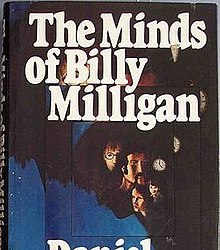
What a fascinating and true story. Billy Milligan was arrested for robbing three women and raping two of them at Ohio State University in the mid-70s. After his arrest it was determined that Billy Milligan was suffering from multiple personalities - 9 main personalities and 14 "undesirable" personalities. In fact, the Billy Milligan personality had been "asleep" for nearly 10 years.
Daniel Keyes does a masterful job of documenting the life of Billy Milligan through a third-person narrative, and then weaving in the various personalities. The explanation, provided by "Arthur" - one of the 3 controlling personalities - of how the various personalities perceived one another and the outside world was both incredible and illuminating.
What this book did for me, most of all, was show the absolute vastness of the human brain. Arthur spoke with a heavy British accent and was self-taught in physics and chemistry and read and wrote fluent Arabic. Tommy was an electronics specialist who could play the saxophone and trained himself to manipulate his hand bones and muscles to escape any cuffs. Ragen read, spoke, and wrote in Serbo-Croatian and could control his adrenaline flow. The ability of the brain to learn these very specialized fields, and then split them into very specific areas (personalities)...it just absolutely blew me away.
Again, it's a really great book and I'd highly recommend checking it out.
#the minds of billy milligan#daniel keyes#crossett library#bennington college#Jared Della Rocca#book review#lit
23 notes
·
View notes
Photo
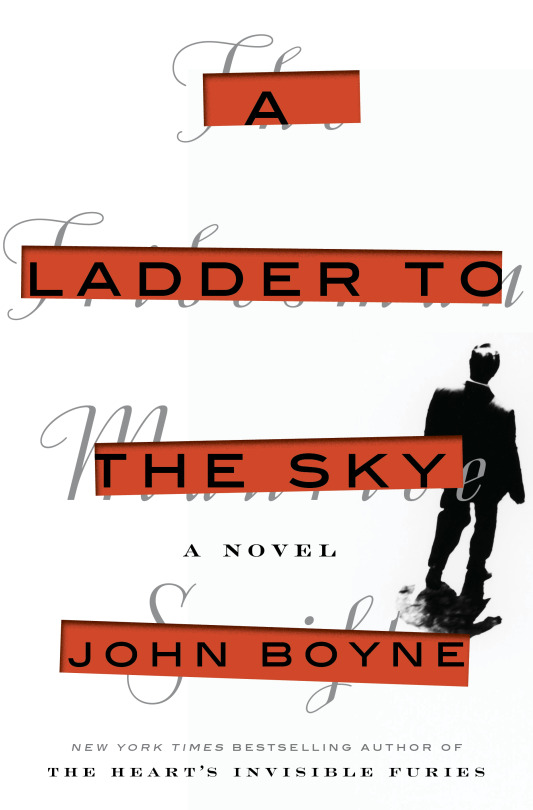
Gay male artist (writer) aging in a Western European country befriends a young protégée for whom he lusts? *Yawn*
At least that’s what I thought until I got to Chapter Two and the whole narrative took off. Having come from The Heart’s Invisible Furies, I had a completely different sense of Boyne’s writing style. And I walked right down that path for the first chapter thinking I had the whole book mapped out. But instead Boyne turns the whole thing around, and leaves you flipping pages furiously, trying to hurry your eyes to move faster, brain to absorb faster. I walked into my daughters swim practice with 100 pages to go and 75 minutes to read. The entire practice I had one eye on the book and one on the clock, praying that I’d finish it in time because there’s no way I could pause over the last 50 pages.
An absolutely great piece of writing, a psychodrama with Boyne’s fingerprints all over it.
11 notes
·
View notes
Photo
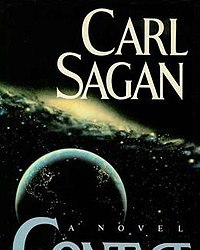
I've never seen the movie version of Contact, so I'm not sure how much of the book tracks with the movie. Which is to say that if you didn't like the movie, don't prejudge the book as I'm guessing that they've dropped a lot of the deeper dialogue that made Contact fantastic.
I think the most analogous book I've read would be Cat's Cradle by Kurt Vonnegut, although Carl Sagan doesn't ascribe to the satire that Vonnegut excels in. Rather the book well traverses the intersection between Science and Religion, particularly in the grandness of the universe. Halloway's excursions to meet with the religious leaders Billy Jo Raskin and Palmer Joss, and then her individual conversations with Joss and Hadden really allow Sagan to transform the novel out of the bounds of "science fiction" and make the whole greater than its parts.
Frequently when I read books I'm looking for plot development, and Contact certainly had some of that, even being listed as a Top 100 Thrillers for the ending. But while the ending was satisfying, I again have to identify the various conversations that Halloway has with the other luminaries as the highlights of the book. I think those could be separately clipped and, without any knowledge of the broader book, be studied as entities unto themselves as guideposts for the continued clash between science and religion.
A really excellent work and well worth the time.
27 notes
·
View notes
Photo
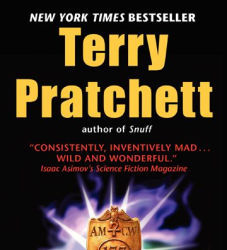
This book was a little bit of a mixed bag. I found the overall storyline to be relatively captivating* with some interesting passages discussing the ramifications of time travel - affect on the present, diverging time streams, etc. However I frequently felt, this being the 29th book in the Discworld series, that I was missing broader storylines. While the two main characters were somewhat fleshed out, there were a lot of details that felt glossed over. The beginning of the book references lilacs, which through the passage of the book left me unsure if it was a reference to another part of the Discworld series, before making a callback appearance at the end. But that sorta set the tone for the entire book - you feel like you’re enjoying it, but aren’t sure how much you’re supposed to understand or not understand about the various characters. For instance there are a group of monks, for lack of a better term, and they seem like icebergs in the book - you get 10% and it seems like 90% is hidden. I’m not sure if that was purposeful by Pratchett, or whether their storyline has already been explored in one of the first 28 books.
So while Night Watch is, on the whole, a good novel, if you haven’t read the first 28 in the series you’re going to feel like you’re walking on unsteady ground.
#crossett library#bennington college#lit#book review#night watch#terry pratchett#discworld#Jared Della Rocca
2 notes
·
View notes
Photo
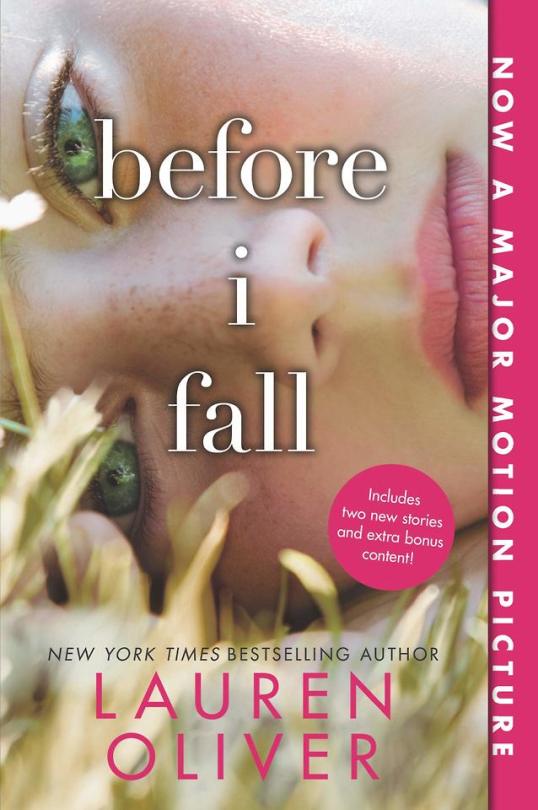
Starting off this book, I really was worried I'd have cavities from how sugary sweet it would be. I mean, popular teenage girl dies and then relives that same last day over and over trying to undo her wrongs? I'd expect to see that plot description as an after-school special.
However, it actually turned out to be a pretty good book! The main character was better developed than I expected. There were good reveals about the surrounding characters that also provided depth but still felt true to life. And the final chapter, appreciating the small bits of life and saying goodbye to family and friends who don't know it's the final goodbye - it was some real heartbreaking writing.
I mean, this book won't enter the pantheon of Great American Novels, however it's a good summer read and may find a good audience in middle to high school students, particularly females. I'm not in that category, but still was worth my reading time.
16 notes
·
View notes
Quote
Obviously no freshmen are allowed in. The social bottom doesn't show either. It isn't because people would make fun of them, although they probably would. It's more than that. They don't hear about these parties until after they've happened...It's like high school holds two different worlds, revolving around each other and never touching: the haves and the have-nots. I guess it's a good thing. High school is supposed to prepare you for the real world after all.
Before I Fall by Lauren Oliver
#lit#quote#before i fall#lauren oliver#absolutely true#been a high school have not and NEVER heard about the parties
7 notes
·
View notes
Photo
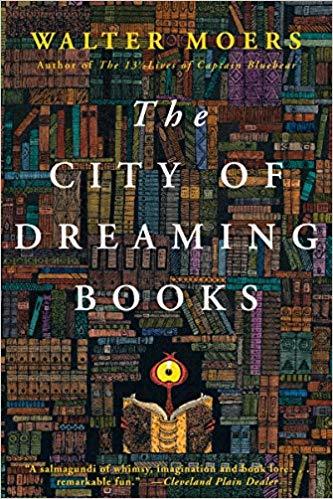
There are some books that just seem written for a Reader. I purposefully capitalize Reader because I’m not just talking run of the mill book readers, but those whose world revolves around the books they’ve read, are reading, and are waiting to read. The people who define different epochs of their lives by the books or genre they were reading at a time. People whose memory of events are jogged by what book they read at the time, or the reverse, reading a passage immediately brings them back to the where and when they first read it.
Books that fall into this category include: If On A Winter’s Night A Traveler by Italo Calvino; Shadow of the Wind by Carlos Ruiz Zafón; S. by Doug Dorst (and JJ Abrams); and now The City of Dreaming Books by Walter Moers.
I had experienced Moers before when I read, almost a decade ago, The 13 1/2 Lives of Captain Bluebear. I don’t remember any of the plot details but I do remember being pleasantly surprised by the experience. And while I can’t be sure it’s for the same reason, I thoroughly enjoyed The City of Dreaming Books!
I think what Moers does best is he makes the reading experience so immersive. Rather than just mention that the world of the novel is filled with books, he gives titles and authors. He writes passages from their works, delineates them into different writing “eras”, describes each library he encounters, how so many of the homes are built out of books.
The whole book is just incredibly enchanting making the first-person narrative so encompassing that it feels less like you’re reading about a character, but that you ARE the character and you’re living the entire experience.
#crossett library#bennington college#lit#walter moers#city of dreaming books#book review#jared della rocca
23 notes
·
View notes
Photo
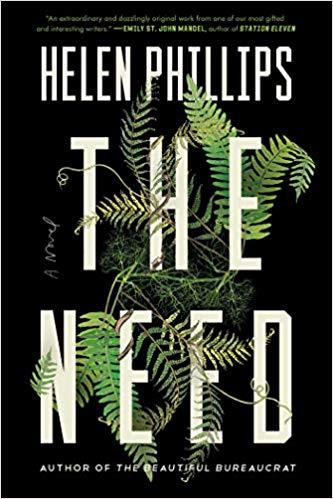
Helen Phillips best works are all about isolation. Take a character, place them in an otherwise unremarkable life, and then remove all the connections to the world around us we take for granted. Strip away the small talk at the grocery store, bumping into co-workers at work, and make the setting of the character their entire universe. She did that extraordinarily well in The Beautiful Bureaucrat, and did it well (albeit slightly less so) in The Need.
The Need focuses on a mother, Molly, and her two children, with her husband away on a work trip for a week. There is some opening of the universe when Molly goes to work and interacts with her two co-workers, but even there the relationships seem at arm's length. Molly is primarily defined by her role as a mother, and so even at work she seems unconnected.
I read this book on a week that my own partner was gone for a week, and so it gave me a better glimpse of that sense of isolation and separation. You talk to your partner, try and share the stories of the day, but it's hard to capture it all and you feel pulled in two different directions - sharing your partner's world while attending to the needs of home.
It's a really good book and I'd recommend it to any parent who has been solely responsible for the care of their children for more than a few days at some point.
3 notes
·
View notes
Photo
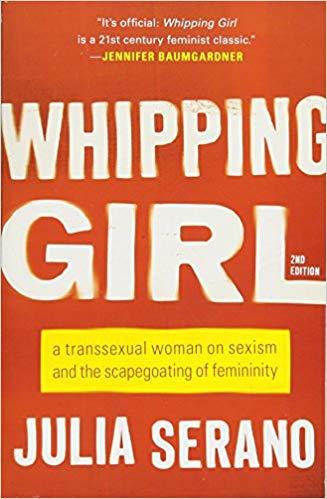
Honestly, I thought heading into this book that it'd be a dry academic reading on trans issues and the trans community. I worried about how well I'd be able to identify or follow along the author's narrative, if one even existed. Instead, I was blown away.
Serano does an excellent job exploring how the many issues of the trans community derive from the cisgender/cissexual societal setup. For instance, and one of my favorite examples, society has a much bigger problem handling femininity in males than masculinity in females. Serano draws a line from there to: the mistaken belief that male-to-female transitions are much more prevalent than female-t0-male; the predominant focus on male-to-female transitioning process - both on sexual transitions as well as the physical aesthetic (watching makeup being applied and jewelry added) even though many male-to-female trans don't choose to lean into femininity; and the persistent question of why someone would "choose" to give up their male privilege.
The book is both academic and easy-to-read and readily breaks down so many stereotypes through research and personal narrative. It's fascinating and highly relevant as the civil rights movement rightfully begins including the trans community.
#crossett library#bennington college#lit#book review#whipping girl#julia serano#transgender#transsexual#trans#trans community
7 notes
·
View notes
Photo
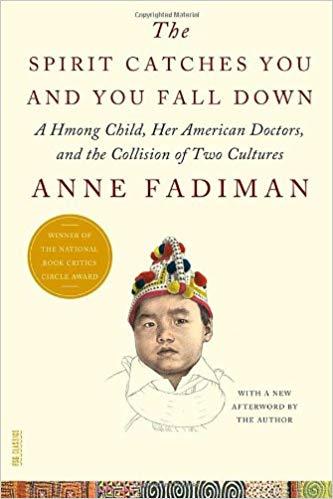
Growing up in the U.S., we are taught the primacy of the Western medical system, usually subliminally. As children, we receive shots "because the doctor said so," go through all the various tests as we grow, and have our statistics charted and compared. Television shows glamorize the medical system. And this isn't just a U.S. modus operandi. Throughout the western world, we're brought up to believe the medical profession has our best interests in mind. But.
It's interesting we almost never hear a But when it comes to the knowledge of Western medicine. So here goes - but what happens when two competing systems of care come into conflict? When the Western style of reliance on pharmaceuticals encounters a style that encompasses a much larger universe of interrelation, e.g. a banging door allows a spirit to escape which causes a seizure? Fadiman uses the case of Lia Lee, a Hmong child in California suffering from epilepsy, to explore the breakdown when Western medicine can't see any path but its own. More broadly, the book explores the history and the culture of the Hmongs, and how a lack of cultural appreciation, even at a minimum cultural understanding, can have disastrous results in the life of a child.
The entire book is well-written and the issues well-explored. Even if you don't come away with a lick of knowledge about the Hmong (nearly impossible, but let's go with it), the book causes you to come away with a broader perspective and have you asking where your own cultural biases may lie, and what the effect of them may be.
#crossett library#bennington college#lit#book review#anne fadiman#the spirit catches you and you fall down
8 notes
·
View notes
Photo
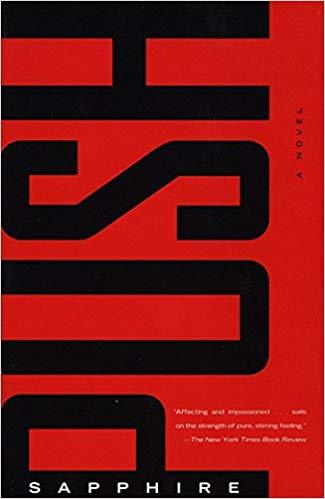
I hadn't seen the movie, so I was going in totally fresh (I was even under the impression throughout the book that it was autobiographical. I didn't want to know differently until I had finished the book.) Now, knowing that it's NOT biographical, it does take a way a bit from the adversity that Precious overcomes. However, the writing was just phenomenal. Sapphire does an incredible job capturing the voice of Precious. Never once, throughout the book, does Precious have a thought or make a statement that's outside her character. And that's a really difficult and fine line to travel. When I was talking with my wife last night, she recapped her experience so far reading "The Hour I First Believed" by Wally Lamb. The book splits the narrative between an adult and a child, and my wife felt the story just didn't ring true because the voice of the child was so far off. As she put it, it's hard to narrate from a child's perspective because the author ends up adding details that a child wouldn't have noticed. And I felt the same with Push, particularly in Precious' recollections of her experiences with her mother and father. She doesn't recall them in deep detail, following a chronological sequence. Rather its bits and pieces - smells, sounds, feeling. It allowed me, as the reader, to fully delve into Precious' world - most exemplified by the fact that I wasn't entirely sure it wasn't autobiographical! While a very difficult subject matter to read, the book was absolutely excellent.
4 notes
·
View notes
Photo
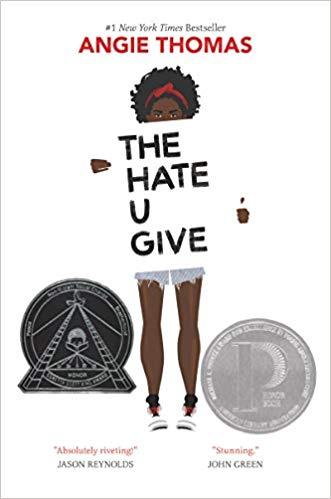
What a phenomenal novel and I'm really appreciative of the recommendation! I had never seen the movie, so I was going into this book totally fresh. But I had a background having read "I Can't Breathe" by Matt Taibbi, a look at the life and death of Eric Garner. And so I had the perspective of watching the system break down, both in real-time with Garner, Sandra Bland, Freddie Gray (and, since I'm older, Amadou Diallo and Abner Louima), and then through a day-by-day breakdown of the entire saga with Taibbi's book. But The Hate U Give was the first book I'd read using the perspective of someone living through these events. And Angie Thomas does a great job capturing them on paper. Khalil's killing absolutely came out of nowhere. As a side note, I was reading the book on my phone, so on one page is Khalil being pulled over, getting out of the car, and then leaning back in. And then on the top of the next page he says "Star, you okay?" and then Pow. Pow. Pow. Like the moments themselves, it came absolutely out of nowhere. I just wasn't ready for it and so, like Star, my breath was just stopped as Khalil's eyes slowly glaze over.
From there, it was eye-opening to see the various battles Star had to go through with her school/schoolmates who repurpose the death for a day off from school under the guise of a "protest", the police and the DA office, and even with herself as she figures out who she is and how to use her voice most effectively, even in "defeat." The whole book just felt real, it never felt like Thomas was twisting the characters for her narrative. She put to paper what too many family members have had to experience, and it's a novel, I agree, more people should read.
8 notes
·
View notes
Photo
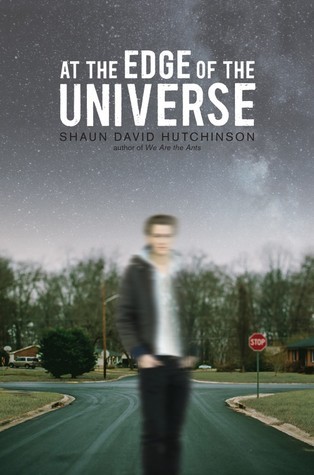
** spoiler alert ** What a really interesting and novel way of approaching the topic of finishing high school! I had read about three quarters of the book when I started talking to my wife about it. I tried to iterate that it is NOT a science-fiction novel, but I was unsure at the time for what the collapsing universe was a metaphor. She suggested that it was the process of aging and that our world gets smaller, but I think she meant it as becoming elderly and your universe of movement shrinks. But *spoiler alert* I had accidentally seen the very last page and noticed The Trevor Project and The National Suicide Hotline mentioned, so I thought that Tommy had killed himself and Ozzie felt like everyone had forgotten Tommy but him. So I kinda followed the story along, nothing particular jumped out at me. But then as I got to the end, the last few chapters as the prom hits and then the universe shrinks even further, I felt like Hutchinson really revved up his writing. I thought how he had Ozzie handle the situation, his entire thought process from the edge of the universe being out in the ocean with Calvin, and then shrinking further until it was right outside his bedroom door was really good. Instead of there being nothingness on the other side, rather it's the unknown on the other side. And instead of just talking about how confining and terrifying that limitless can be, Hutchinson portrayed it through Ozzie's internal dialogue so friggin well as he sits in his bedroom. The entire play on the closed door behind you that you can't open was just perfectly done.
#crossett library#bennington college#lit#book review#at the edge of the universe#shaun david hutchinson
13 notes
·
View notes
Photo
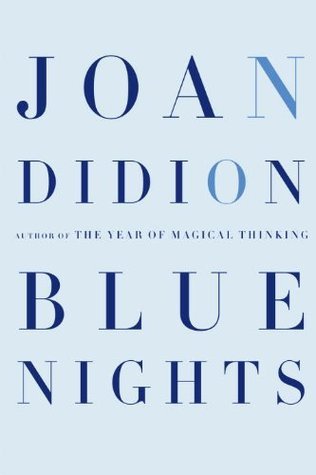
I got the book home after reading the first few pages and suddenly the book disappeared in my house. A few days later, I found it in the hands of my wife. "Thanks for bringing this home for me," she said. Perplexed, I checked my list and her texts and I reminded her - "I brought that home for me!" I let her finish as I had a stack of other books. Periodically, during her reading of it, she'd stop, look up with tears on her eyes, and exclaim I just had to listen to this passage. I'm not really good about listening to people read (which eliminates audiobooks) - I get too distracted and can't concentrate properly. So I nodded along at the appropriate points and bided my time until I could read it.
Fast forward a few weeks, my wife was done with the book and it was my turn. Wow. That's the first word that comes to mind when thinking about Blue Nights. It's stunningly written, both crushingly sad and yet there's no escaping reading it. Once you've read the first line (post-first chapter "prologue") - "July 26 2010. Today would be her wedding anniversary", you've been captured until you finish. The book just bleeds with emotion, helped along with my wife informing me briefly of the details of her daughter and husband's death, when I realized how quickly one occurred after the other. As short as the book is, it took me over a week to read. There was just no way to race through it and give it the attention it deserved. At most I could read one or two pages, perhaps an entire chapter, and that'd be it for the time being. I had to allow time for it to sink in, to allow what I had read to make the trip to my inner consciousness and return, dredging with it whatever emotions it deemed to fit. Once that process had repeated itself and there were no more emotions to be found, it was time to return to the book and tackle the next piece.
The whole book is a work of art, in written form, and it was a true pleasure to read.
5 notes
·
View notes
Photo

I found the format to be very reader-friendly. Because it's a script, there's no internal exposition, and scene descriptions, rather than scattered throughout and being varied and repeated, were fairly singular and right at the beginning. And the characters, in such a short time, really established their own style. Hansberry did an incredible job so quickly bringing them to life. You could feel the struggles of Walter, extrapolating out, as a person of color in 1958 as he wants more for himself and his family. Having to live in his mother's home and feeling like, as a chauffeur for a white man, he hasn't come far from his ancestors as sharecroppers and slaves. And then the generational change even between siblings with Walter and his mother on one side trying to understand Beneatha's exploration of herself and dreams of being a doctor and not just finding a rich husband. The play has so many avenues to explore and yet is so tightly packed.
9 notes
·
View notes
Photo
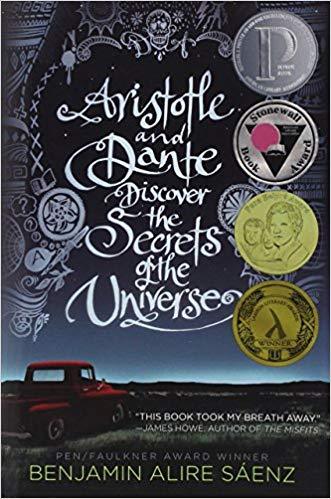
I was caught off-guard by this book just a little. Let me say now, before I go further, there may be spoilers in this review. It’s just hard to hit the big points without accidentally stumbling into something that may give something away. Okay? We all on the same page? Great.
So going into this book, and seeing the Dante and Ari(stotle) meet, I said to myself, “Great, this is gonna be a boy meets boy teen romance. Awkwardly discover they’re both gay and then live happily ever after.” Instead, as I read along, Sáenz instead writes the two characters, particularly Ari, really true. Ari plays to his character as a lonely, fly under the radar, quiet kid. He’s got a lot bottled up inside of him and struggles to express it. It never felt like Sáenz was overdoing it and stereotyping at all. Instead, Sáenz struggles always fit right into the narrative. Then when Dante comes out as gay, and Ari is straight, the narrative continued to flow as Ari, particularly, struggled to understand Dante. Not only Dante’s sexuality, but it was just a further wrinkle in Dante’s understanding of himself, while Ari continued to figure out who he himself was. I have to admit I was even choked up a bit as the book approached the end and Ari’s parents both began opening themselves up a bit to help Ari with his own internal struggles. Of course, at the end, both characters end up out of the closet which felt a bit false to me, however the book didn’t hinge on each of their sexuality and it never felt as if Ari’s struggles were purely defined by his sexuality, nor solved by his coming out. So it made it a more natural part of his life as opposed to his defining feature.
Overall a really well-written book and definitely in the Top 10 of YA novels of its ilk.
#crossett library#bennington college#lit#book review#aristotle and dante#aristotle and dante discover the secrets of the universe#benjamin alire sáenz
20 notes
·
View notes
Quote
The truth is neither good nor bad. It is above evil. Above morality. It doesn't offer anything besides itself.
Bittersweet by Miranda Beverly-Whittemore
4 notes
·
View notes